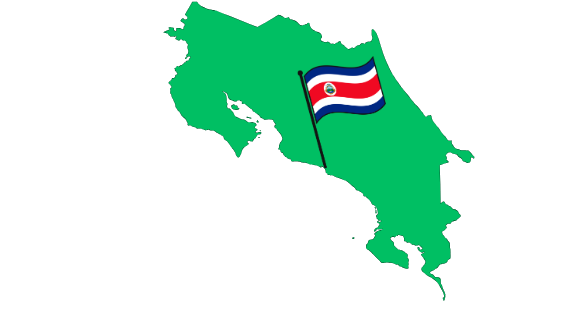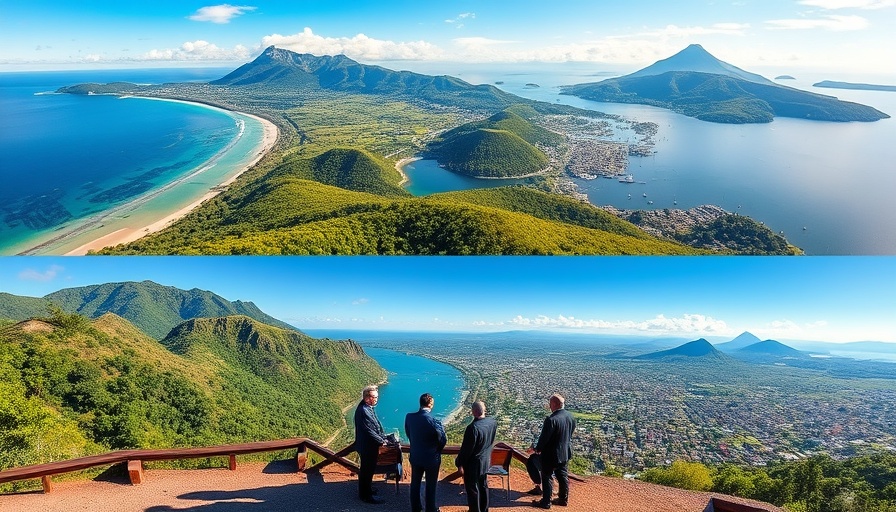
The Evolution of Free Trade Zones in Costa Rica
In recent years, the free trade zone regime in Costa Rica has transitioned from simply bolstering exports to becoming a cornerstone of the national economy. This evolution reflects a broader trend in which free trade zones now encompass a variety of sectors including technology, healthcare, film industries, and cutting-edge research initiatives. What started as an initiative to promote physical product exports has significantly expanded to include innovative areas, such as sustainable development and specialized health centers.
In 'El Futuro de las Zonas Francas y la Inversion Internacional', the discussion dives into the pivotal role of free trade zones, exploring key insights that sparked deeper analysis on our end.
Targeting Global Investment: Costa Rica's Strategy
As global trade dynamics shift, Costa Rica has adeptly positioned itself to attract foreign investment, which is particularly crucial in today’s interconnected economy. New proposals, such as the global minimum tax, are projected to reshape investment landscapes, and Costa Rica’s free trade zones are pivotal in adapting to these changes. With a reputation for stability and innovation, the country’s strategic approach shines a light on its commitment to maintaining a robust economic environment.
Boosting the Audiovisual Industry: A New Economic Engine
The audiovisual sector has emerged as a significant driver of economic growth within Costa Rica, generating jobs and establishing vital supply chains. This increasingly important industry is attracting both national and international attention, leveraging advancements in technology such as AI, virtual reality, and digital processes. Employing strategic collaborations and technological partnerships, businesses—both large and small—are finding new pathways to enhance their competitiveness and contribute to overall economic development.
The Boon of a Skilled Workforce
One of Costa Rica's greatest assets lies in its highly skilled, bilingual workforce. The education system in the country is conducive to building the competencies required by modern businesses, providing a pool of qualified candidates who can meet the increasing demands of employers. This preparation from primary to tertiary education levels ensures that businesses can find talent equipped to tackle upcoming challenges and innovate in their respective fields.
Geographic Advantages: A Logistics Hub
Costa Rica's geographical location not only provides a stunning array of landscapes but also serves as a strategic logistics hub for distribution. Its proximity to major markets enhances its appeal to foreign investors looking for efficient operations. Each of its six distinct regions offers unique advantages, showcasing the potential for business growth within diverse natural backdrops. This geographical advantage seamlessly ties into the overall narrative of Costa Rica as an ideal place for investment.
Pragmatic Insights for Entrepreneurs and Investors
For businesses considering expansion into Costa Rica, the free trade zone regime presents an array of opportunities. Understanding the regulatory environment, including incentives and tax structures, is crucial for making informed decisions. Entrepreneurs and investors should conduct thorough research and possibly consult legal and economic experts in the area to navigate these opportunities effectively.
Conclusion: Seizing the Future in Costa Rica
Costa Rica's free trade zones represent more than just economic structures; they are emblematic of the nation's adaptive strategies in a globalized context. With a blend of innovation, a skilled workforce, and strategic geographical placement, opportunities for investment abound. As global markets evolve, Costa Rica stands as a beacon of potential for those looking to capitalize on future trends in industry and investment. If you are navigating opportunities in international markets, consider the possibilities that Costa Rica offers—it could be your next strategic move.
 Add Row
Add Row  Add
Add 




 Add Row
Add Row  Add
Add 

Write A Comment